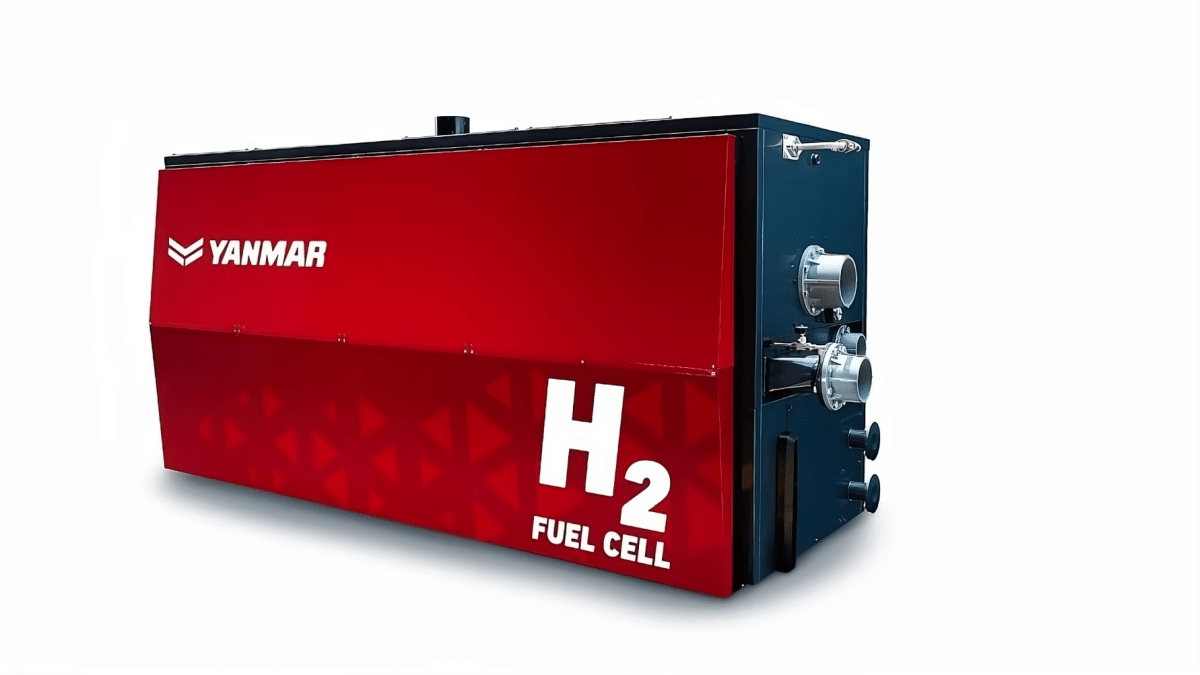Yanmar H2 fuel-cell system to go commercial

With its history in diesel engines, Osaka-headquartered Yanmar is rapidly branching out into alternative propulsion systems, having set its sights on a medium-speed, methanol dual-fuel engine in addition to the hydrogen fuel-cell system it has been developing.
Yanmar said categorically that it has “successfully commercialised a maritime hydrogen fuel-cell system”, after extensive testing and a partnership with Japan’s Ministry of Land Infrastructure, Transport and Toursim (MLIT) on safety guidelines for hydrogen fuel cell-powered ships.
“Yanmar aims to provide total solutions for decarbonisation and digitalisation of ships with comprehensive designs covering the entire powertrain of fuel-cell ships, encompassing power storage, power management, propulsion, hydrogen storage systems and more. This comprehensive system will support the decarbonisation and digitalisation of the entire ship,” the company said.
Working with partner Toyota, Yanmar conducted a field demonstration test of marinised hydrogen fuel-cell modules, based on technology used in the automaker’s Mirai midsize car. The 200-kW system was installed into Yanmar’s EX38A FC pleasure boat for field testing. The enginebuilder plans to scale up the technology for larger vessels by 2025.
“For the inland waterways in the US, there is the 20-litre 6AYA M and 6AYA E, the mechanical and electronic versions of the same engine, and for outside the US, the 6EY17, which is a popular choice for tugboats in Brazil,” said Mr Micu. The 6EY17 is both IMO Tier II and IMO Tier III-certified, while 6AYEM-ET engines are EPA Tier 3, IMO Tier II and IMO Tier III (with SCR) compliant.
Hybrid-electric applications are also on Yanmar’s radar. “We have purchased a battery company called Eleo in the Netherlands,” said Mr Micu. “We will use that to leverage the move into electrification. Hybrid in the marine industry, depending on the operation, makes sense. Pure electrification makes perfect sense for point-to-point operations,” he added.
